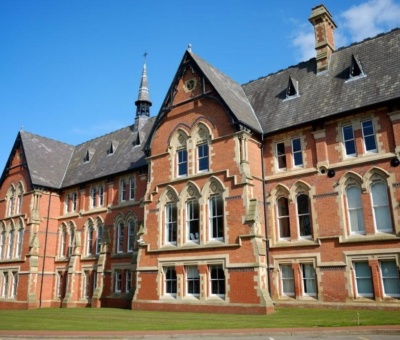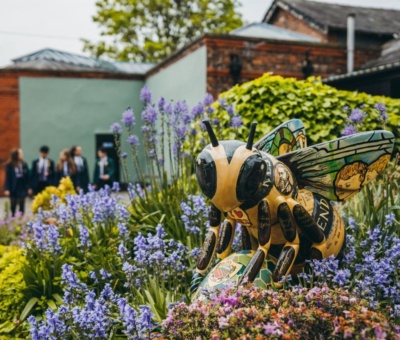Why study Politics at A Level? – Nick Robinson (Class of 1982)
How does the media affect politics? Why can the people you’ve never heard of assist you on the road to your success? And why does Mr Thorn’s Politics Blog have as much status as the national political media?
CHS Sixth Form Politics student Bailey took some time away from the study books and watching the news to catch up with former BBC Political Editor and Old Waconian, Nick Robinson, Class of 1982, to find out more about the fast-paced life of a political journalist in today’s modern world.
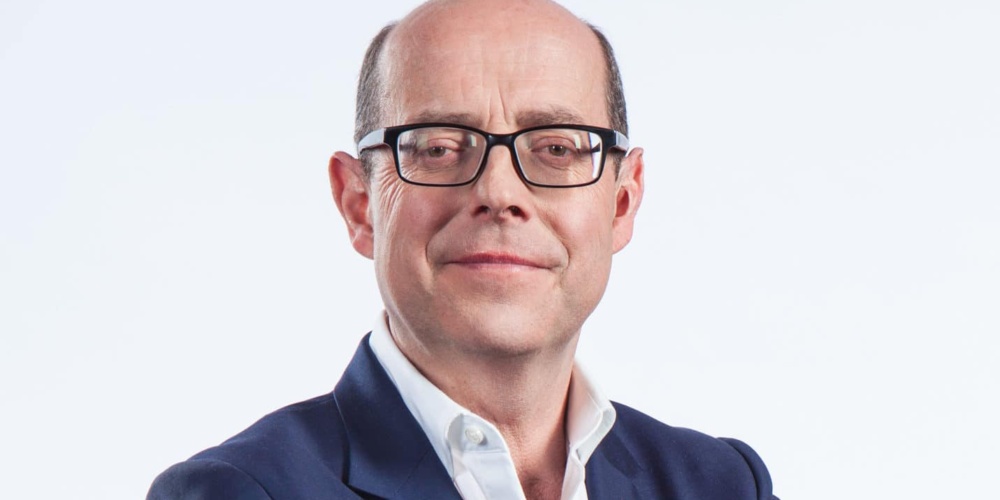
Bailey: What has it been like to be a Political Journalist in politics over the last few years?
Nick: Exhilarating and exhausting! The only predictable thing at the minute is that things are unpredictable. The speed of change and the number of extraordinary events have brought about things we didn’t see coming. Politics as a whole has had to react to the unknown. Politicians have to now understand there is a whole series of reactions which have been taking place that they often weren’t aware of and it seems to me there are 2 things happening…
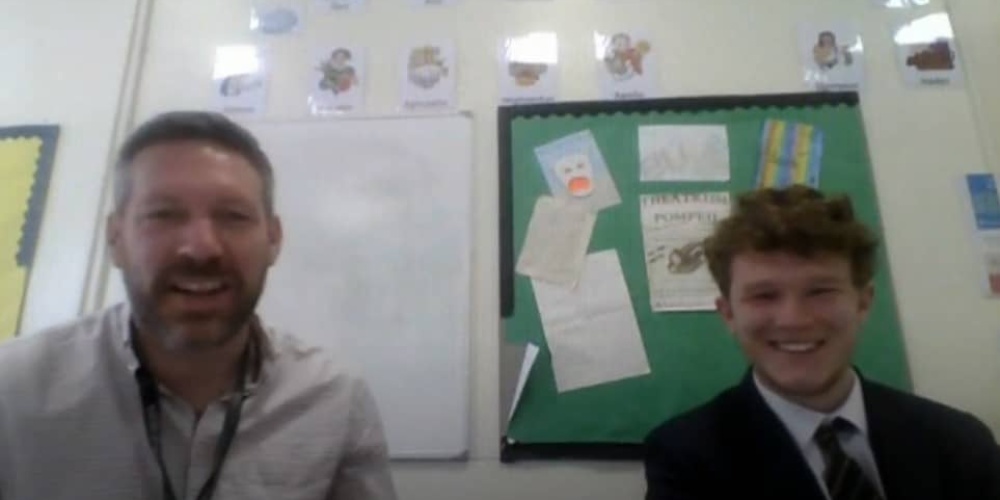
1) big external shocks such as the war in iraq, not being told about things, banking crisis, big global trends which have had a dramatic economic impact
2) the explosion of social media means mainstream media is no longer the only/main way people consume their news and get information.
The combination of these things, where lots of factors have made people angry, together with channels which allow them to voice these concerns and find others online who feel the same, has meant events don’t follow the pattern they would have done 20-30 years ago.
Bailey: With this rise in Social Media how has your role changed?
Nick: There was a time when the only place you could see what a politician was saying was through television, radio or newspapers so there were a limited number of people (the media) through which the politicians had to broadcast, much to their frustration.
As Political Editor at the BBC I had to choose which clips of the Prime Minister to broadcast, or there would be an interview from which I would have to select the questions – and to some extent, the answers. Now politicians can broadcast directly to the people so you can listen to the whole of a speech without interruption, meaning the public has as much power as journalists. If you publish something on a social media platform, you can get an audience for it, so you can become as influential or perhaps in some cases, even more influential and that is a huge change to how things once were.
Bailey: What was your experience of politics like when you were a Waconian at CHS?
Nick: When I was at CHS and interested in politics, there was no A Level course, you would just get together with like-minded people in a room and talk about it. Thanks to social media, that room has got so much bigger; we can now discuss, co-ordinate, agree or disagree on a campaign, all without having to pick up a phone. That’s a huge change in the power structure of politics; politicians and broadcast media have got less of it, and the people have got more.
Bailey: Do politicians respond differently to journalists now there is an opportunity for the public to make their views heard?
Nick: Ministers/Shadow Ministers now have their eye on how interview clips will work on social media; it often makes them super cautious as they don’t want to say a phrase that will live on forever, or they may read out a lot of pre-prepared material from the Party HQ because it’ll be less damaging for people to respond badly to something than make an error which continues. They may also say something they know isn’t good for a particular audience but is a crowd pleaser. You see it in interviews like Prime Minister’s questions. They’ve prepped the clip for Facebook and aren’t remotely interested in the question, they just want a particular portion of their answer to be shared.
Bailey: Why is Politics a good subject to study at A Level?
Nick: I’m pretty sure I would have chosen to study Politics in Sixth Form at CHS if it had been available to me. I grew up in a family who watched the news a lot and I became fascinated with knowing how that world worked and became interested in how power worked. Also, the grandparents on my mother’s side were german-jewish refugees. I remember going to visit them in Switzerland; we would stay after lunch and my grandfather would dial through his old radio to tune in to the BBC World Service. We’d listen in total silence. I wanted to know more about what I heard; why things were happening, what might happen, why is there an argument about the middle east, why is there a debate about who is in power, who isn’t and who should be, and more about the balance between judges and politicians, journalists and the people.
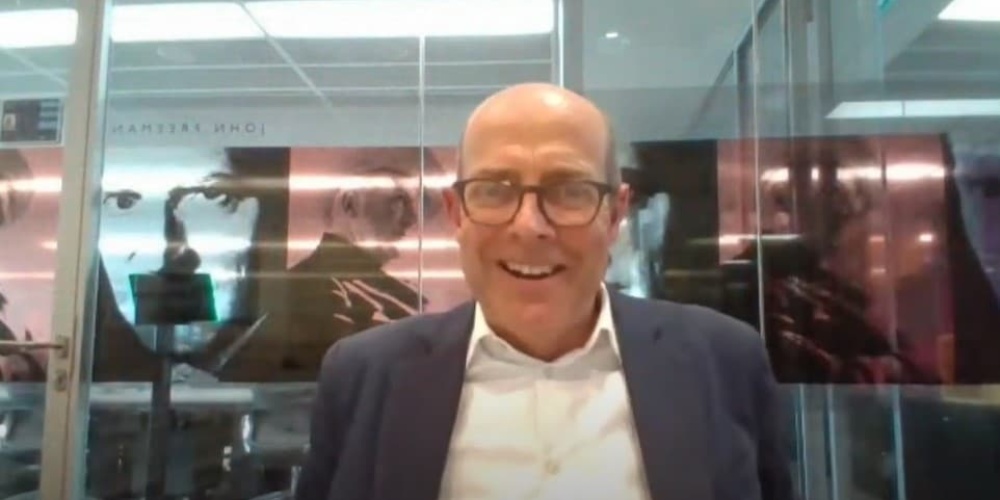
Bailey: Why is now a great time to study politics?
Nick: You could say why do we study anything? We study to understand how things work and why they are as they are. Just as you may study science to know more about why a battery makes your phone work, in Politics you study it because you want to understand why certain people have power over our lives and other people don’t. How decisions are made. And what with all the events of today, this throws up so many questions. So even if you never want to have any specific involvement in politics, or you don’t like a lot of politicians, or what they say, studying it is to get a grip on what it is that influences these decisions that shape all of our lives.
I’m always struck if someone says they don’t like politics or don’t really understand it; if I were to ask them whether they cared about who decides their mobile phone tariff, I can’t imagine them saying they couldn’t care less. Do you care whether Facebook pays any tax? If the answer is yes, studying politics in Sixth Form is certainly worth considering.
Bailey: Wouldn’t studying a STEM subject like Science or Maths make me more employable?
Nick: The assumption might be that studying Politics is “soft” or about having a debate about today’s issues, but just like History or Science it’s about understanding why the world is as it is. It is a proper academic subject which looks at structures of government, decision making, the electoral system, we can learn from all these things. I studied Politics at university, which provided me with the learning discipline to understand better, the way the world works.
Bailey: Are there any books you would recommend reading to understand the subject further?
Nick: There are only a few politicians’ memoirs which will truly take you inside the world of decision making. Tony Benn’s diaries of the 70s and 80s; Alistair Campbell’s diaries of the Blair government; Alan Clark is very witty about the Tory governments he was involved in; or more recently Simon Kuper’s Chums is a good read too; i think picking the right memoirs about politics can provide a great insight into the decisions being made.
Bailey: How is it possible to go about getting a more balanced view of Politics?
Nick: Firstly decide upon your own core sources i.e. those you trust. For example the BBC, Sky News, ITV, some newspapers like The Times, Financial Telegraph, New York Times. Those which are clearly fact-based, separating fact from comment. Subconsciously know you are reading from people from different perspectives so if you read from both The New Statesman and The Spectator you will be getting views from both the left and from the right. There are also quality websites like Unheard (from the right) or The New Statesman website (from the left). Have certain sources of information which you know provides a fair summary and doesn’t need to be fact-checked for the truth.
You can then also refer to other sources which you consciously know will be more opinionated, who may say and raise subjects that the BBC cannot, but to be very aware of where they’re coming from.
Always follow things you don’t agree with. Ask yourself the question “Why are they saying that?” Particularly where you think the truth is self-evident. So if you feel very strongly about about say, the rights of palestian people, be sure to follow an Israeli blogger – you have to read something which says there is another view. If you feel strongly about transgender rights, you need to follow someone who makes the argument J.K. Rowling makes – and you need to do it at length; so not in the space of a tweet. Reading something at length will give you an understanding of the alternative perspective. If you don’t do that you’re just reinforcing your own prejudices.
It’s also about the attitude of mind; if a lot of people think something, that means people who are sane, intelligent, thoughtful, likeable may think it too. So if roughly half america are not in favour of gun control, it’s just lazy to say they’re mad. It’s far more interesting to wonder “Why does someone like me think something different?” Looking at views outside of the norm can be really fascinating.
Bailey: If I wanted to become the BBC Political Editor, what route would you advise I take?
Nick: You’ve just got to make it happen. There’s no excuse for not doing so. Anyone can write a blog online, anybody can make their own podcast or produce their own video interviews. You just have to do it to prove that you can. During my time at CHS, a current colleague at the BBC and I created a satirical magazine like Private Eye – an old copy recently resurfaced at our 40 year reunion!
Politics is a subject where knowledge really helps. If you’re interested in it, you might use your own time to volunteer, do some research for an MP, work for a Think Tank, or write for a local paper by reporting on council meetings. Leaving CHS I wrote to the local commercial radio station which is now Key 103, asking if I could do anything; I thought I’d be there for a day or a week and ended up staying there for a year.
Also, as well as getting involved, talk to people who are currently involved. Write to the people you’ve never heard of like those who run programmes, producers, sub-editors… write something personal, specific to them, that shows you’re interested in what they do; they will be more likely to interact with you. People generally are willing to help, but you need to put yourself out there and ask to receive it. Put the effort in. And do not use templates or cut’n’paste.
Bailey: What are the advantages of studying politics at A Level?
Nick: It teaches you to analyse and process arguments and to be able to understand arguments on both sides. In many jobs it is helpful to, at speed, process information to summarise it as a series of key points, to be equally fluent with both the side you agree with and that which you don’t, or with both sides if you have no view. Those skills have a value well beyond politics, regardless of the career path you may wish to take.
Bailey: What do you think it takes to be successful in Politics and Journalism?
Nick: Articulacy and analytical skills are important, as well as being able to see different sides of an argument, which studying Politics is very good at teaching you. The world is changing so fast so the career you could end up in may not exist today, so you must build a skillset that will see you through many different jobs, maybe even different careers.
Bailey: What qualities make for a great Politician?
Nick: Self-confidence and honesty; to say either ‘I don’t know’ or be willing to admit that the reason for this is because that’s not their responsibility or there simply is no way of knowing because it’s impossible to predict the future or what some events might bring about. Instead saying ‘what I can tell you is, these are my beliefs…’ Too many politicians at the moment are willing to read out statements provided to them but I value those who don’t shy away from responding to questions with a real answer.

